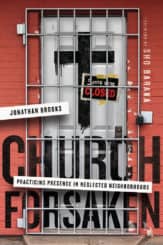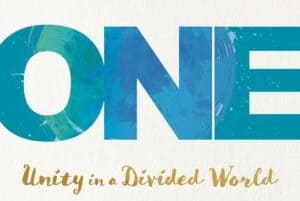
At Canaan we are trying to live into our tagline “the church where love makes the difference,” which we have found to be a very dangerous statement. Christians often tell people we love them before we have ever lived with, listened to, or learned from them. If we are going to be genuine, presence becomes a precursor to love and a foundational principle for ministering to the needs of our neighbors.
Christians often tell people we love them before we have ever lived with, listened to, or learned from them.
Discussing our responsibility as the body of Christ all over the world is a necessary dialogue. However, we must also discuss the specific role for a local body in a geographic location. The apostle Paul did not just write to the universal church in his letters. He wrote to specific groups of Christ followers in specific places, dealing with specific sets of issues and needing specific encouragement. He addressed Corinth about desiring special roles in the church, when love is supreme. He wrote to Ephesus about their syncretizing of Artemis worship, a female-dominated religion, with Christianity, thus urging the women to humble themselves and allow the men an opportunity to lead.
These are specific issues with specific solutions, which we have often tried to spread like mayonnaise over the entire church. We like to assume that the things we value, the places we live, and the societal lenses through which we see the world don’t affect the way we read the Bible. We like to assume that the way we view or understand biblical writing will remain the same no matter whether we live in a rural province in China or in Englewood on the south side of Chicago. But it does not.
This is why it becomes important for the local church to be concerned with presence, listening to neighbors, and knowing what’s going on where they are. We then become God’s presence in a place, the tangible representatives of God in our local context. If we are going to represent God’s presence in a place, then we have to be aware of the gifts, assets, needs, burdens, sorrows, joys, and so on of that place. We cannot just have a church service once or twice a week; we must be aware of and involved with everything going on around us. This includes knowing what’s going on in families, with the schools, on the streets, and with the gangs, and being aware of what injustices are occurring. We stay aware of everything going on around us so that we know how to live as representatives of God’s presence for all people.
If we are going to represent God’s presence in a place, then we have to be aware of the gifts, assets, needs, burdens, sorrows, and joys of that place. We cannot just have a church service once or twice a week.
Unfortunately, in many communities local churches are an afterthought when it comes to community transformation. This has lifted the weight of kingdom work off the local church and put it onto parachurch or not-for-profit organizations. While the work of these organizations is important and necessary, there would be less need for them if the local church were doing its job. Even if the need for parachurch organizations did not decrease, their fundraising needs would decrease because they would become extensions of a local church and connected to those resources. The local church should be known as a community asset and a partner to all the community leaders and organizations that desire to see that community flourish. It is my heart’s desire to see greater transformation happen through the church’s participation.
Jonathan Brooks (“Pastah J”) is senior pastor of Canaan Community Church in Chicago’s Englewood neighborhood. A sought after speaker, writer, and artist, he has contributed to two books: Banned Questions for Christians by Christian Piatt and Making Neighborhoods Whole by John Perkins and Wayne Gordon, and is the author of Church Forsaken: Practicing Presence in Neglected Neighborhoods, from which this excerpt is taken with permission fromInterVarsity Press.
(“Pastah J”) is senior pastor of Canaan Community Church in Chicago’s Englewood neighborhood. A sought after speaker, writer, and artist, he has contributed to two books: Banned Questions for Christians by Christian Piatt and Making Neighborhoods Whole by John Perkins and Wayne Gordon, and is the author of Church Forsaken: Practicing Presence in Neglected Neighborhoods, from which this excerpt is taken with permission fromInterVarsity Press.


